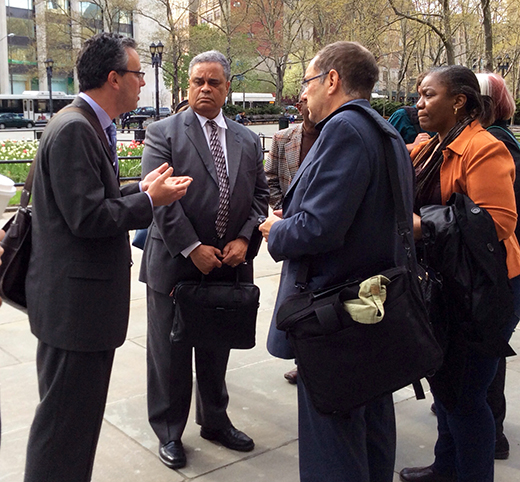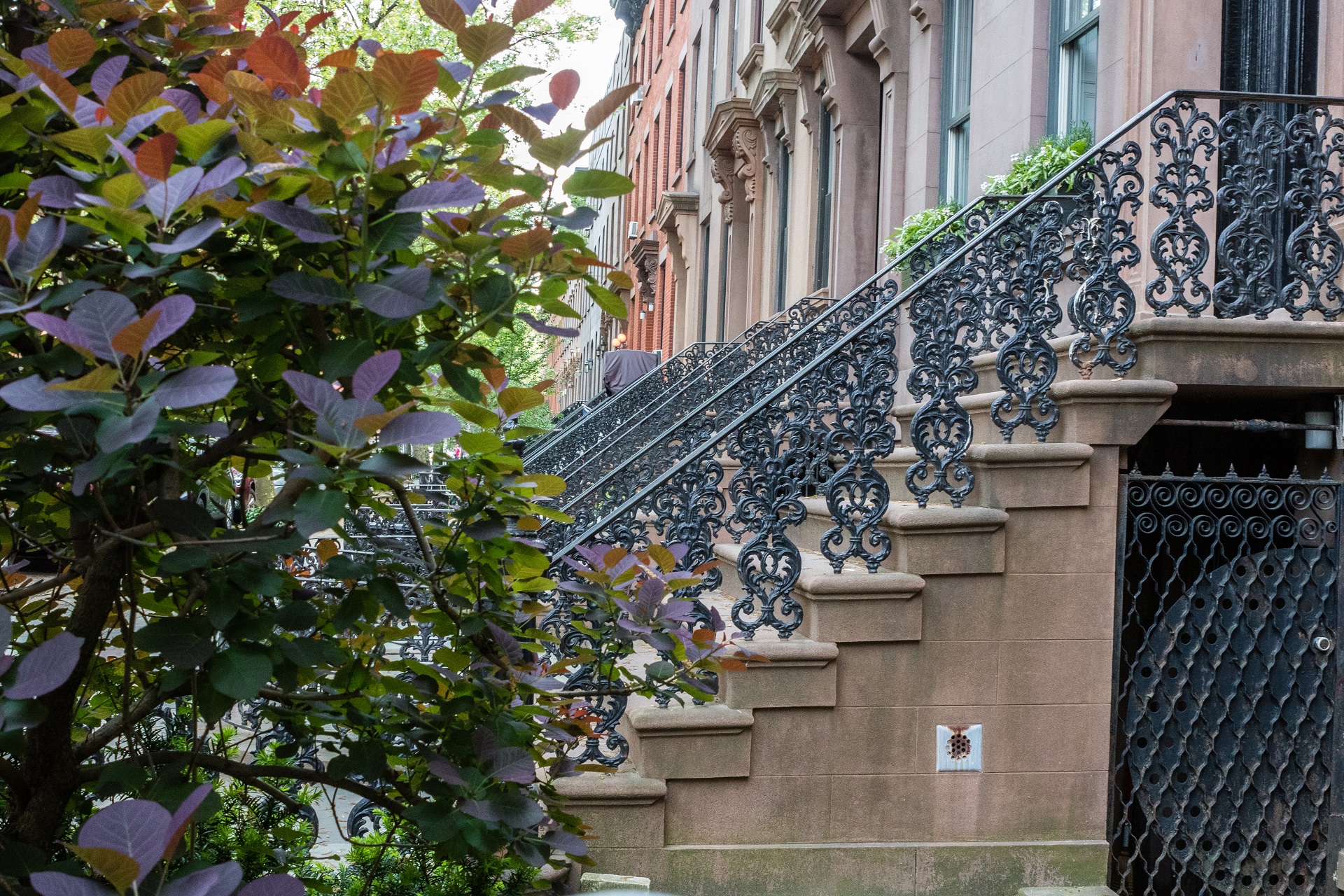LICH bidder drops lawsuit against SUNY, says ‘prepared to close’ on Brooklyn hospital deal
Judge wants to see money and paperwork

BHP's Merrell Schexnydre, by Mary Frost
The group negotiating to buy Brooklyn’s Long Island College Hospital (LICH) withdrew their lawsuit against SUNY late Friday after being told by state Supreme Court Justice Johnny Lee Baynes that they had filed for an injunction prematurely.
“Don’t jump the gun in my court,” Justice Baynes told attorneys for Brooklyn Health Partners Development Group (BHP), led by California developer Merrell Schexnydre. Justice Baynes allowed BHP to withdraw without prejudice.
Attorneys for BHP said they are confident that negotiations will continue with SUNY until Monday’s deadline, when a $25 million non-refundable deposit is due.
